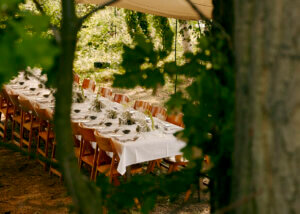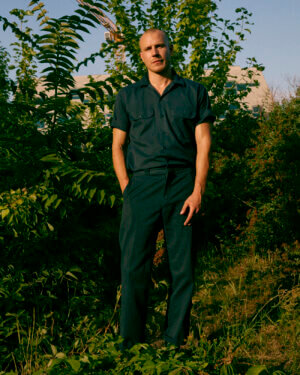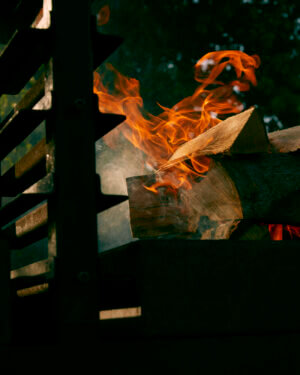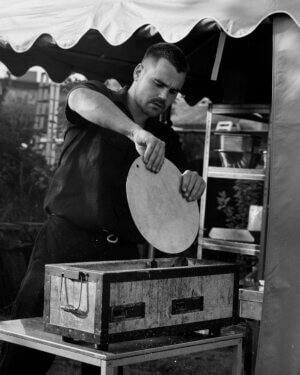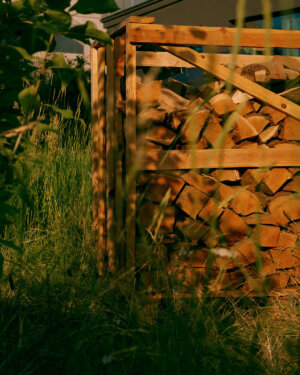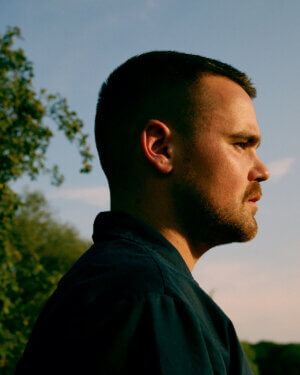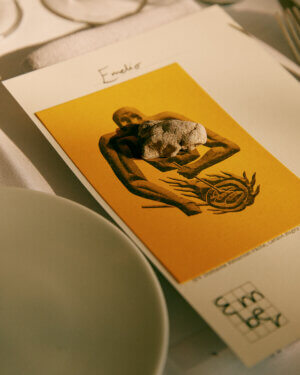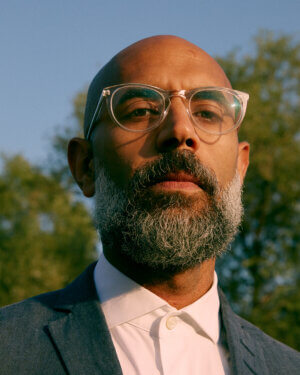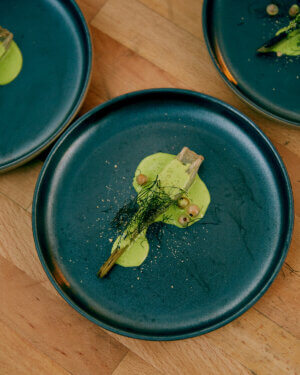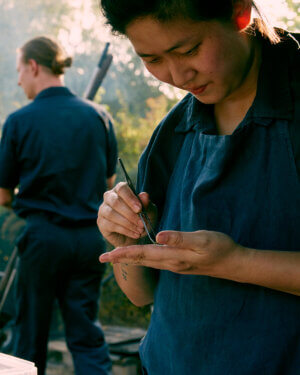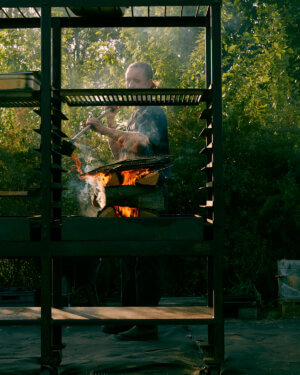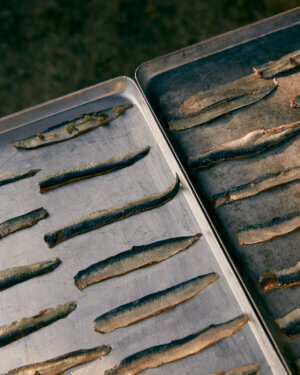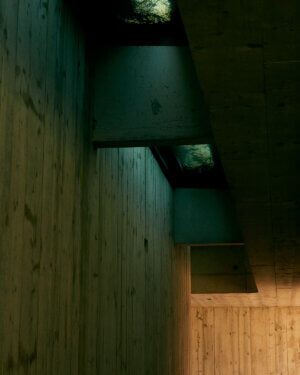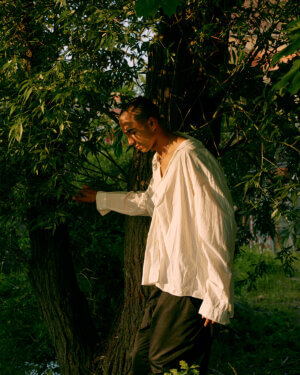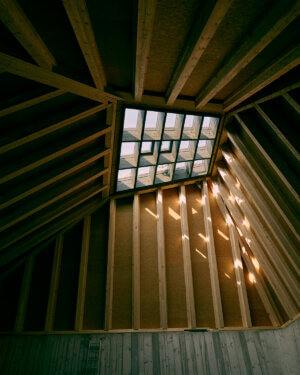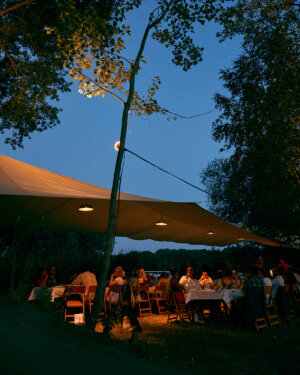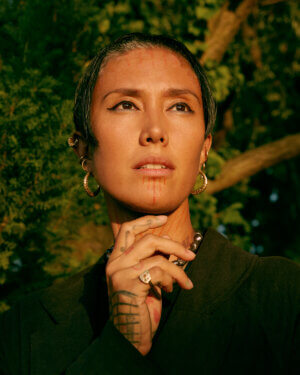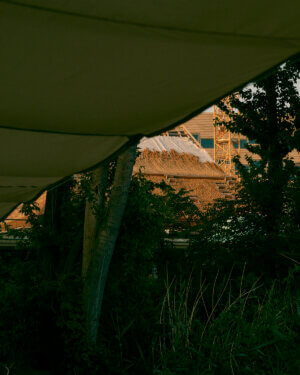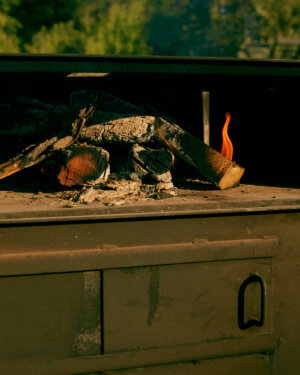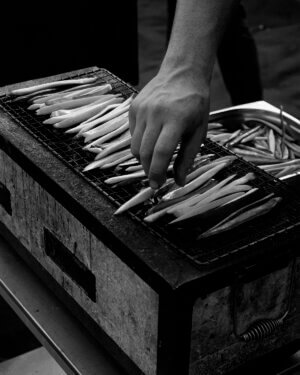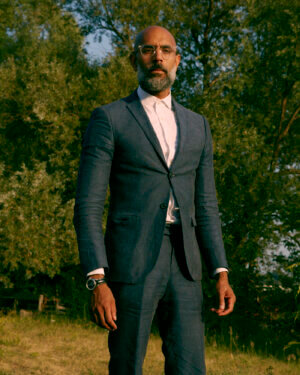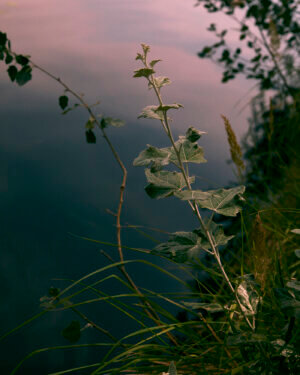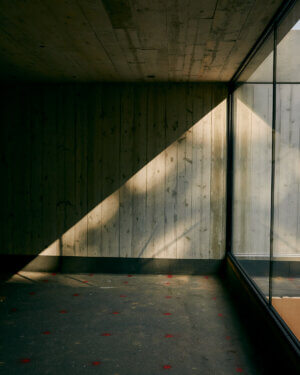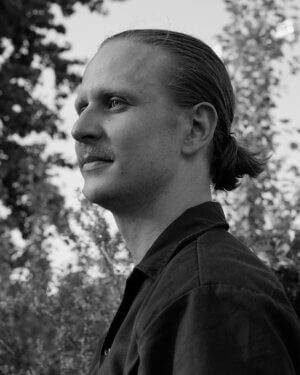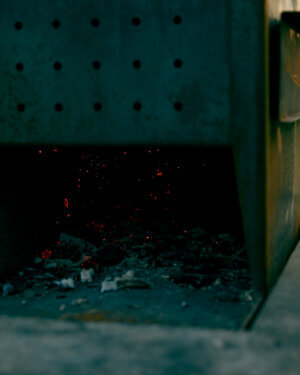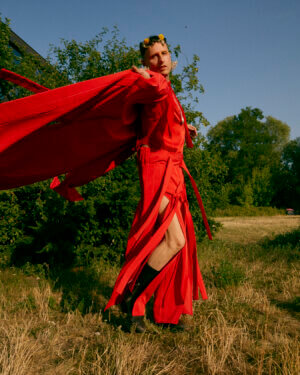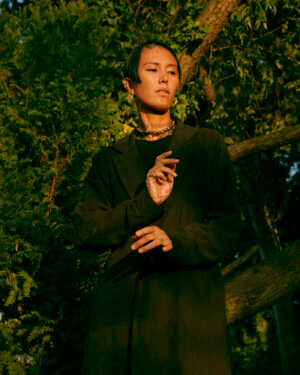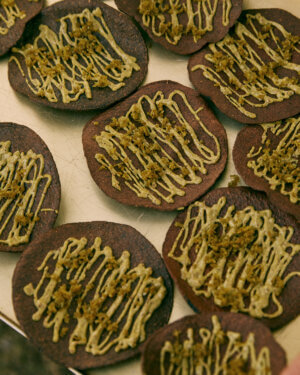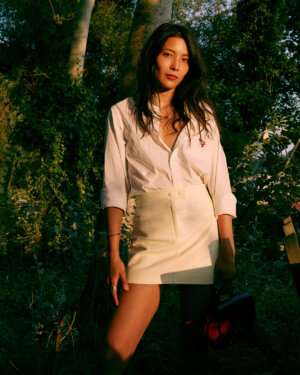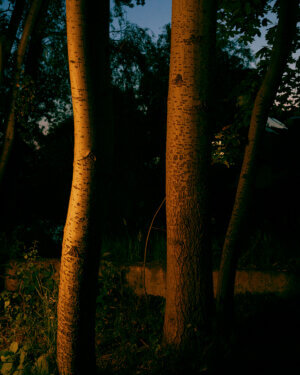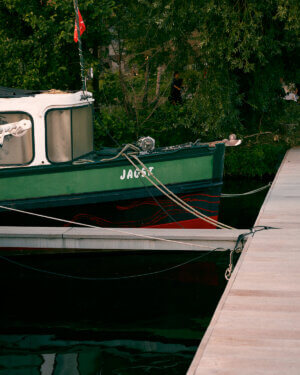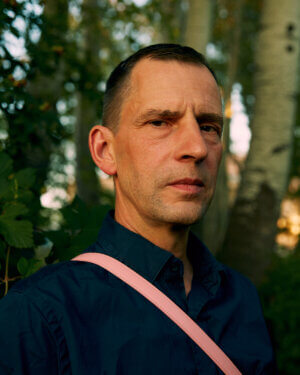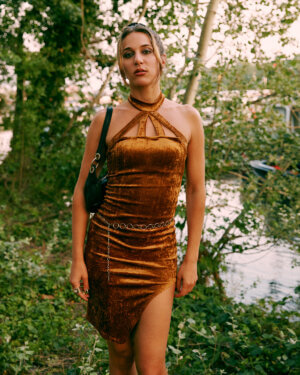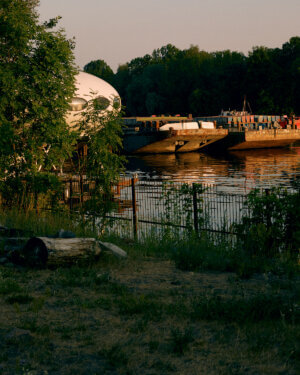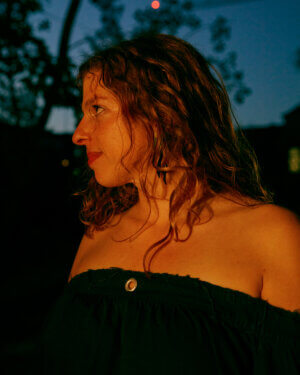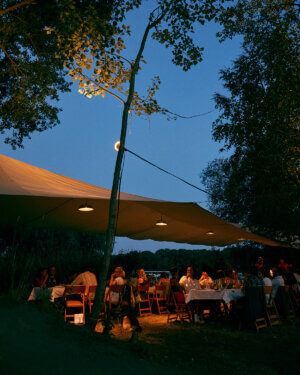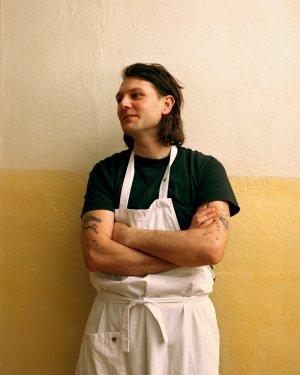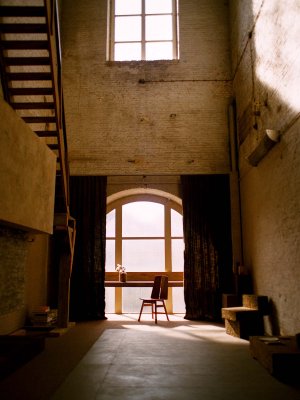On a balmy evening at the end of June, some 40 Berliners gathered on the Spree riverside for the first in a summer-long dinner series by Ember, the upstart Berlin food collective that’s been gathering a cult following in the city for its wood-fired cuisine served at a long table in unexpected locations, from an old archive in industrial Marzahn to a hilltop vineyard in the Rhineland. This summer, that location is Flussbad, our creative campus on the Rummelsburger Bucht. For this first dinner, the guests were handpicked by Slowness, a mix of collaborators, partners and friends who sat together in the shadow of the Reethaus, the reed-roofed subterranean performance space nearing completion near the river’s edge, and were met with a succession of delights: black corn tostada with zucchini, pistachio molé and pickled chillies; wood-fired ricotta with fava beans, grilled snap peas and salted lemon; lamb al asador with spring onions and romesco—all paired with wine or nonalcoholic ferments.
Everything was hyper-seasonal, bright and imaginative, bold, complex and phenomenally tasty—a tribute to Ember’s founder and head chef, Tobias Beck, a German native who has worked with some of the best culinary minds in the world. But equally exciting was the social atmosphere created by the setting, by the food, by the long table filled with friends and strangers. By the time the last dessert was served (summer strawberries with fermented tea sabayon and chamomile), a streak of rakish chaos had set in: some danced or told stories; others decamped conspiratorially out onto the riverbanks. It’s a formula Tobias and his partner Hatim Zubair, a fine-dining veteran from Sudan by way of Toronto, have refined over the past year. We caught up with them a few days after the dinner to find out their secrets.
